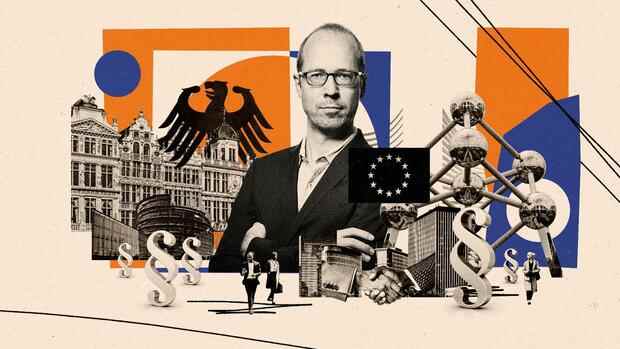Carsten Volkery is a Handelsblatt correspondent in Brussels.
(Photo: Klawe Rzeczy)
Brussels One of the favorite words of French Presidents is solidarity. Since the Russian invasion of Ukraine, Emmanuel Macron has used it even more frequently than usual. However, he is anything but solidarity when it comes to one issue: he is blocking a new gas pipeline from Spain to Germany.
Work on the Midcat pipeline across the Pyrenees started years ago, but was stopped in 2019 for environmental and cost reasons. Since the outbreak of the Ukraine war, the situation has been fundamentally different: while Central Europe fears an acute gas shortage due to the lack of supplies from Russia, Spain and Portugal have excess liquid gas thanks to their LNG terminals.
The problem: The gas can hardly be transported north at the moment. In the words of the EU Commission, the Iberian Peninsula is an “energy island” that is largely cut off from the rest of Europe. Only two small pipelines connect Spain with France, the capacity of which does not exceed seven billion cubic meters.
The Spanish Prime Minister Pedro Sanchez has therefore been campaigning for months to complete the Midcat pipeline. He is supported by Chancellor Olaf Scholz and Portugal’s Prime Minister Antonio Costa.
Top jobs of the day
Find the best jobs now and
be notified by email.
So Macron suddenly finds himself in a two-front battle. Similar to Scholz with the tank deliveries, he is increasingly in need of an explanation as to why this pipeline should not be built. Macron is so annoyed that he recently complained that he didn’t understand why people had to jump around on this topic like the Pyrenean goats.
Mediterranean pipeline as plan B
His arguments: the construction of the pipeline will take years, is too expensive at three billion euros and will not solve the current energy crisis. It also runs counter to the EU goal of getting rid of fossil fuels.
Spain has large LNG storage capacities.
(Photo: via REUTERS)
The Spanish government counters that better connections between friendly countries are the only way to become independent of Russian gas. You also have to think about the following winters. In the long term, hydrogen can also be supplied via the pipeline – so it does not contradict the EU’s climate goals.
Behind the dispute between neighbors are tangible economic interests: Spain dreams of a lucrative future as an energy supplier for northern Europe. France, on the other hand, does not want to be a transit country, but wants to export to Germany itself. As a French official confirmed to the news portal “Politico” last week, Paris wants to supply liquid gas from its own LNG terminals in the short term – and in the future also hydrogen produced with nuclear power.
>> Read also: Signs of foreclosure: The EU countries do not trust each other when it comes to gas issues
An underwater tube through the Mediterranean Sea is being discussed as an alternative to the Pyrenees pipeline. A feasibility study is already underway for a 700-kilometer tube from Barcelona to Livorno in northern Italy, which would bypass France. However, this Plan B would cost more and take longer, as Spanish Energy Minister Teresa Ribera recently said in an interview with the Handelsblatt.
French President Macron is blocking a pipeline from Spain because his country wants to export energy to Germany itself.
(Photo: AP)
Scholz and Sanchez have not yet given up hope of changing their colleagues in the Élysée Palace. When Sanchez receives the Chancellor in northern Spain on October 5, they will probably continue to increase the pressure on Macron – and demand a little French solidarity.
More: Pipeline through the Mediterranean – how Spain wants to supply Europe with gas
